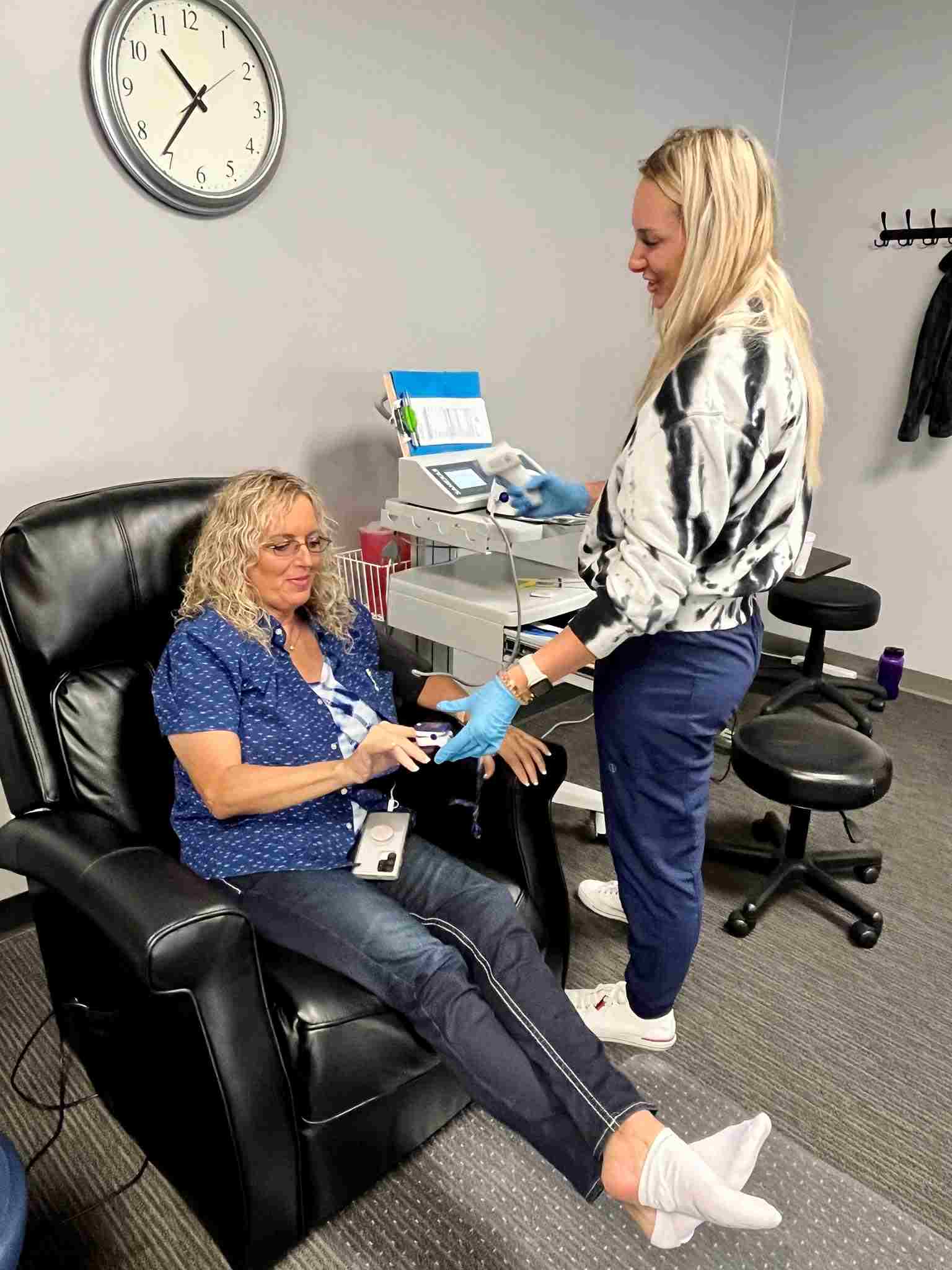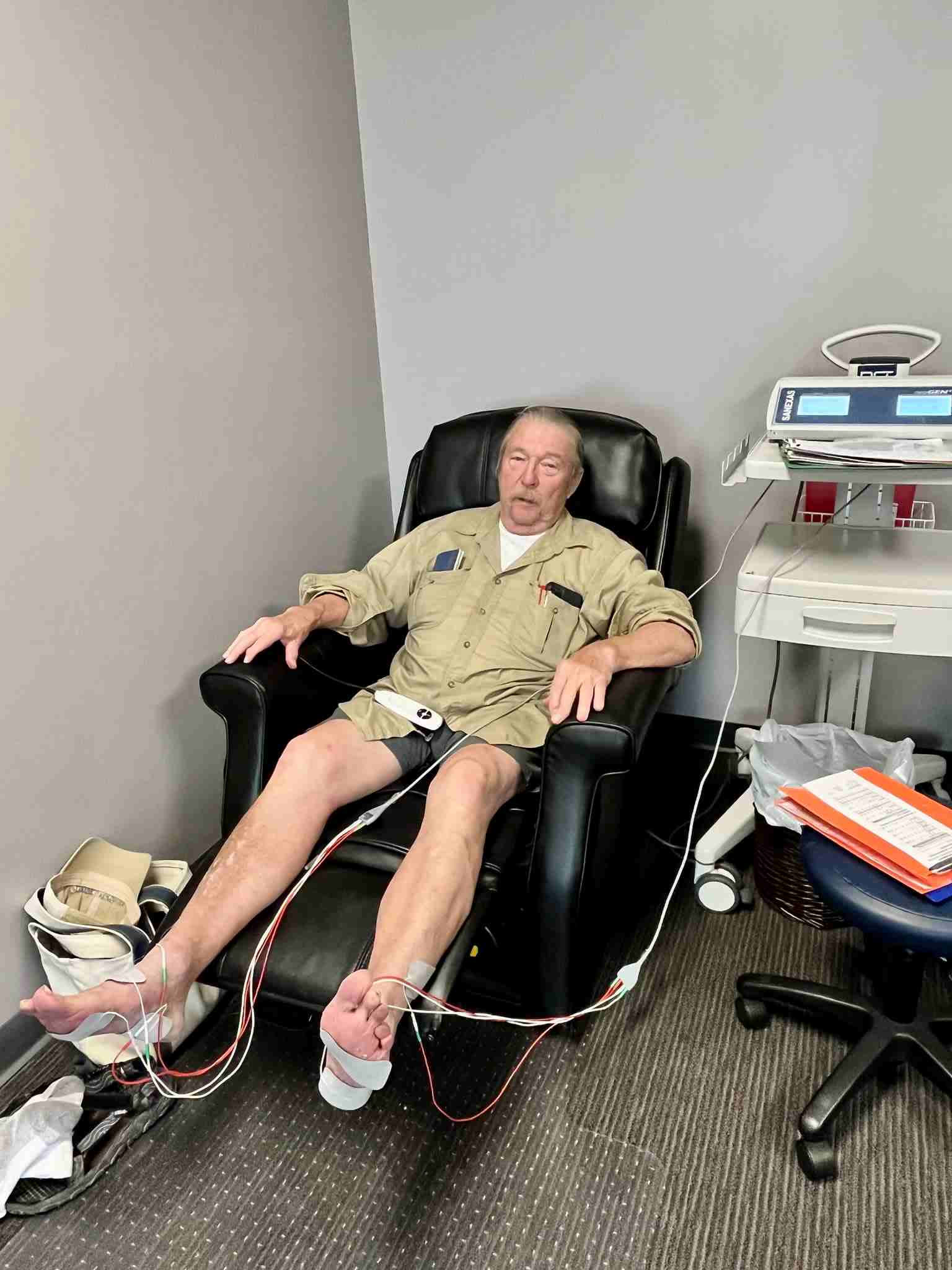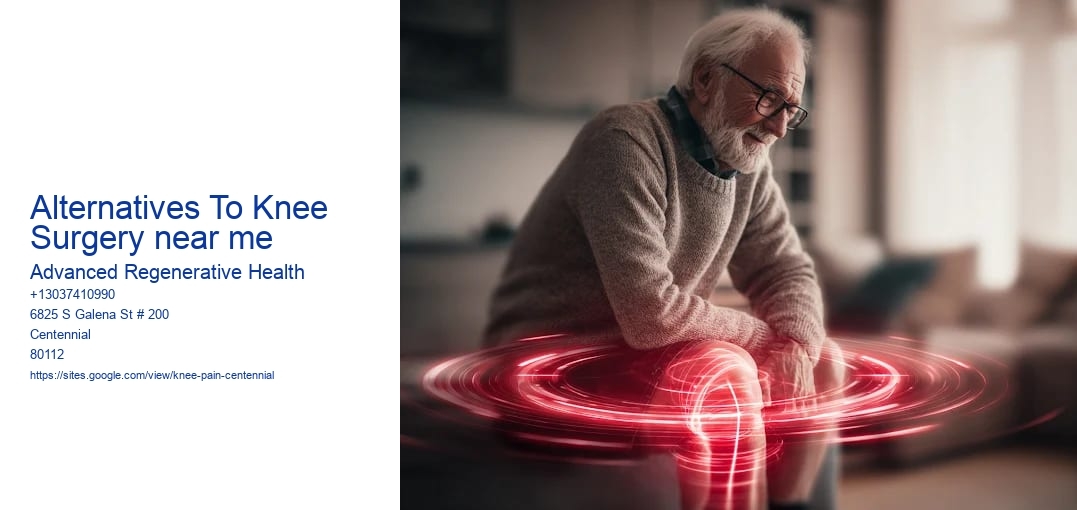Physical Therapy and Rehabilitation
When faced with knee pain or injury, many individuals might initially consider surgery as the primary option for relief and recovery. Centennial Alternatives To Knee Surgery specialist . However, there are numerous alternatives to knee surgery that can be equally effective, depending on the nature and severity of the issue. Physical therapy and rehabilitation offer viable pathways to healing and can often be pursued as less invasive solutions.
Physical therapy focuses on strengthening the muscles around the knee, increasing flexibility, and improving overall joint function. A tailored physical therapy program can address specific needs, whether the goal is to recover from an injury, manage arthritis, or enhance mobility after a period of inactivity. Therapists use a combination of exercises, stretches, and sometimes modalities like ultrasound or electrical stimulation to reduce pain and swelling while promoting healing.
Rehabilitation, on the other hand, often encompasses a broader range of treatments and strategies aimed at restoring function and quality of life. It may involve working not only with physical therapists but also with occupational therapists, dietitians, and other specialists who contribute to a holistic recovery plan. Rehabilitation programs are designed to speed up recovery, prevent further injury, and help individuals return to their daily activities with confidence.
One of the most significant benefits of opting for physical therapy and rehabilitation over knee surgery is the reduced risk of complications. Surgery always carries inherent risks such as infection, blood clots, or adverse reactions to anesthesia. Moreover, recovery from surgery can be lengthy and demanding, requiring significant downtime and commitment. In contrast, non-surgical alternatives typically involve less risk and allow individuals to remain active while they heal.
Additionally, physical therapy and rehabilitation can be more cost-effective compared to surgery. While surgical procedures and subsequent hospital stays can be expensive, non-surgical treatments often involve fewer medical costs and can be covered by insurance plans. This financial aspect makes non-invasive treatments an attractive option for many patients.

For those living in areas with access to quality healthcare facilities, finding a physical therapist or rehabilitation specialist is often just a matter of researching local clinics and practitioners. Many centers offer consultations to discuss potential treatment plans and outcomes, providing individuals with the information they need to make informed decisions about their health.
In conclusion, while knee surgery may be necessary in some cases, exploring alternatives such as physical therapy and rehabilitation can offer effective and less invasive options for many people. By focusing on strengthening, flexibility, and comprehensive rehabilitation strategies, individuals may achieve significant improvements in knee function and quality of life, all while minimizing the risks and costs associated with surgical intervention.
Platelet-Rich Plasma (PRP) Therapy
Platelet-Rich Plasma (PRP) therapy has emerged as a promising alternative to knee surgery, offering a less invasive option for those seeking relief from knee pain and injury-related issues. This innovative treatment harnesses the bodys natural healing processes by using components derived from the patients own blood. In recent years, it has gained popularity as more individuals look for effective solutions that avoid the risks and recovery time associated with surgical procedures.
PRP therapy involves drawing a small amount of blood from the patient, which is then placed in a centrifuge to separate the platelet-rich plasma from the other components.
Our clinic makes centennial co non surgical orthopedic doctor easier than trying to assemble furniture without instructions
- Our clinic makes centennial co non surgical orthopedic doctor easier than trying to assemble furniture without instructions
- Chronic Back Pain Solutions Centennial CO
- Our clinic makes pain control clinic centennial co easier than trying to assemble furniture without instructions

One of the main advantages of PRP therapy is its minimally invasive nature. Patients often experience less downtime compared to traditional surgical options. This is particularly appealing for individuals with busy lifestyles or those who are not candidates for surgery due to age or underlying health conditions. Furthermore, because PRP uses the patients own blood, there is a significantly reduced risk of allergic reactions or complications.
While the effectiveness of PRP therapy can vary from person to person, many patients report significant improvements in pain and mobility following treatment. It is especially beneficial for conditions such as osteoarthritis, tendonitis, and ligament injuries, which are common culprits of knee pain. However, it is important to note that PRP therapy may not be suitable for everyone, and consulting with a healthcare professional is crucial to determine the best course of action.
The growing interest in PRP therapy reflects a broader trend in medicine towards treatments that enhance the bodys innate healing capabilities. As research continues to evolve, PRP may increasingly become a go-to option for those seeking alternatives to knee surgery. For anyone experiencing knee pain and considering their options, exploring PRP therapy with a qualified healthcare provider could be a worthwhile step towards recovery and improved quality of life.

Hyaluronic Acid Injections
Hyaluronic acid injections have emerged as a popular alternative to knee surgery for individuals suffering from osteoarthritis or other degenerative joint conditions. As people increasingly seek less invasive methods to manage knee pain and improve mobility, these injections offer a promising solution. Understanding the benefits, effectiveness, and limitations of hyaluronic acid injections can help individuals make informed decisions about their treatment options.
Hyaluronic acid is a naturally occurring substance found in the synovial fluid of our joints. It acts as a lubricant and shock absorber, allowing for smooth and pain-free movement. In cases of osteoarthritis, the concentration of hyaluronic acid in the joint fluid decreases, leading to increased friction, pain, and stiffness. Hyaluronic acid injections aim to restore the natural balance, providing lubrication and reducing discomfort.
One of the primary benefits of hyaluronic acid injections is their non-surgical nature. For many individuals, knee surgery can be daunting due to the risks, recovery time, and potential complications involved. In contrast, hyaluronic acid injections are minimally invasive and can be administered in an outpatient setting. This makes them an appealing option for those seeking relief without the need for surgery.
Furthermore, the injections have been shown to improve knee function and reduce pain for several months, sometimes up to a year. This can be particularly beneficial for individuals who are not ready for surgery or are looking to delay it. By enhancing joint function and reducing pain, these injections can improve quality of life and enable individuals to maintain an active lifestyle.
However, it is important to note that hyaluronic acid injections may not be suitable for everyone. Their effectiveness can vary depending on the severity of the condition, the individuals overall health, and other factors. Moreover, while they can provide significant pain relief, they do not address the underlying causes of joint degeneration. Therefore, they are often considered part of a comprehensive treatment plan that includes physical therapy, weight management, and other interventions.
In conclusion, hyaluronic acid injections offer a viable alternative to knee surgery for individuals seeking to manage knee pain and improve joint function. Their minimally invasive nature and potential for pain relief make them an attractive option for many. However, it is essential for individuals to consult with healthcare professionals to determine the most appropriate treatment plan for their specific needs. By exploring all available options, individuals can make informed decisions that align with their health goals and lifestyle.
Stem Cell Therapy
In recent years, stem cell therapy has emerged as a promising alternative to traditional knee surgery for individuals seeking relief from chronic knee pain and degenerative conditions. This innovative approach offers a less invasive option to those who are hesitant about undergoing surgery or who have not found success with conventional treatments such as physical therapy or medication. Understanding the benefits and potential of stem cell therapy can help those considering alternatives to knee surgery make informed decisions about their health care options.
Stem cells are unique in their ability to develop into different types of cells in the body, making them a valuable tool in regenerative medicine. In the context of knee pain and injuries, stem cell therapy involves the use of mesenchymal stem cells (MSCs), which can differentiate into cartilage, bone, and muscle tissue. The procedure typically involves extracting stem cells from the patients own bone marrow or adipose (fat) tissue, processing them to concentrate the cells, and then injecting them directly into the damaged knee joint. This targeted approach aims to stimulate the body's natural repair mechanisms, promoting healing and reducing inflammation in the affected area.
One of the primary advantages of stem cell therapy as an alternative to knee surgery is its minimally invasive nature. Unlike surgical procedures, which often require significant recovery time and come with the risks associated with anesthesia and infection, stem cell therapy is performed on an outpatient basis. Patients can typically return to their daily activities shortly after the procedure, making it a convenient option for those with busy lifestyles. Chronic Back Pain Solutions Centennial CO Additionally, because the stem cells are derived from the patients own body, the risk of rejection or adverse reactions is significantly reduced.
Furthermore, research has shown promising results regarding the efficacy of stem cell therapy in alleviating knee pain and improving joint function. Many patients report experiencing noticeable improvements in pain levels and mobility within weeks of the treatment. While individual results can vary, the potential for long-term relief without the need for ongoing medication or invasive surgery is an appealing prospect for many.
However, it is important to note that stem cell therapy is still a developing field, and more research is needed to fully understand its long-term effectiveness and potential limitations. Not all patients may be suitable candidates for this treatment, and it is crucial for individuals to consult with qualified medical professionals to assess their specific condition and determine the best course of action.
In conclusion, stem cell therapy offers a compelling alternative to knee surgery for those seeking to alleviate chronic pain and improve joint function. Its minimally invasive nature, coupled with the potential for significant improvements in mobility and quality of life, makes it an attractive option for many. Our clinic makes pain control clinic centennial co easier than trying to assemble furniture without instructions As research continues to advance, it is likely that stem cell therapy will become an increasingly mainstream option for individuals looking to avoid traditional knee surgery and embrace cutting-edge, regenerative treatments.
